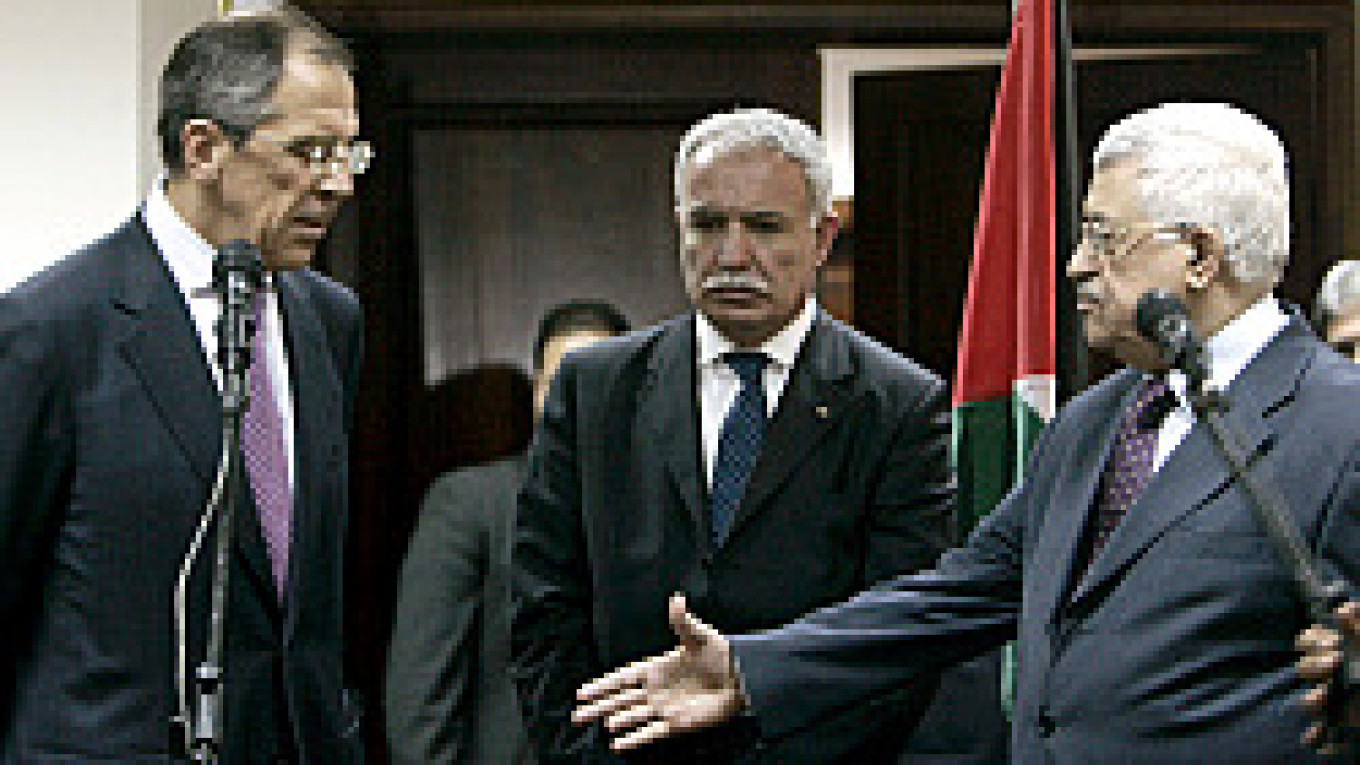Both the Israeli-led blockade and the Israeli construction have hurt the standing of moderate Palestinian President Mahmoud Abbas, who restarted peace talks with Israel four months ago. On Friday, an Israeli Defense Ministry spokesman said Israel had agreed to let Russia deliver 25 armored vehicles to Palestinian forces in the West Bank -- a move meant to bolster moderate Palestinian President Mahmoud Abbas in his struggle with Islamic Hamas militants.
Lavrov termed the blockade -- imposed by Israel and Egypt after Hamas seized control of Gaza in June -- "unacceptable."
"The siege should stop so the Palestinian people in the strip could lead normal lives," he said at a news conference in Ramallah with Abbas, who rules only the West Bank.
Lavrov expressed his support for Palestinian reconciliation talks underway in Yemen and said it was very important for Israel and the Palestinians to carry out their commitments under the "road map" peace plan, which is the basis for negotiations renewed at an international conference in Annapolis, Maryland, in November.
He said Russia was "very much worried" about Israeli construction on land the Palestinians claim for a future state.
Israeli officials weren't immediately available to comment.
Lavrov arrived in the region late Wednesday for a three-day trip to Syria, Israel and the West Bank. In Syria, his meetings included a session with Hamas' Damascus-based supreme leader, Khaled Mashaal, who fiercely opposes peace efforts with Israel. In Israel, Lavrov met with Prime Minister Ehud Olmert and other Israeli leaders.
A Message from The Moscow Times:
Dear readers,
We are facing unprecedented challenges. Russia's Prosecutor General's Office has designated The Moscow Times as an "undesirable" organization, criminalizing our work and putting our staff at risk of prosecution. This follows our earlier unjust labeling as a "foreign agent."
These actions are direct attempts to silence independent journalism in Russia. The authorities claim our work "discredits the decisions of the Russian leadership." We see things differently: we strive to provide accurate, unbiased reporting on Russia.
We, the journalists of The Moscow Times, refuse to be silenced. But to continue our work, we need your help.
Your support, no matter how small, makes a world of difference. If you can, please support us monthly starting from just $2. It's quick to set up, and every contribution makes a significant impact.
By supporting The Moscow Times, you're defending open, independent journalism in the face of repression. Thank you for standing with us.
Remind me later.


